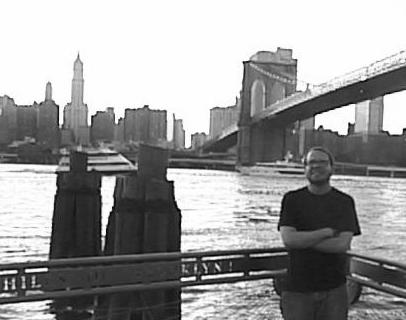Nevermind the Elephant
News from Pakistan has been rather glum these past few days, since the murder of opposition leader Benazir Bhutto, former head of the Pakistani People's Party (PPP). Benazir, who's father was also assassinated, died last week after a suicide bomber approached Bhutto's car and detonated explosives. News has been sketchy these past few days as military enforcement of rioting has greatly limited access in certain regions of Pakistan. This, coupled with Pakistan leader President Musharaf's press office releasing conflicting information, raises a major concern on whether or not the public is being led by a crafted piper or a true president (representative of the people who are--in theory--given the task to elect their leader this February.
The PPP has announced that Benazir Bhutto's son, Bilawai Bhutto, will take her place for the February election. Her son, who is a student at Oxford University in the UK, enters a hornet's nest of political confusion, one that puts him in the line of a difficult legacy, with both his mother and grandfather dying at the hands of dissidence. It can only be hoped that he can carry the same power to bring about peace and democracy as fellow Oxford student Mohatas Gandhi had in India sixty years ago, though hopefully without meeting the same end by an assassin's bullet.
What stands at risk is not simply an election for change, a desire for reform, a fight for justice on the part of Pakistan's people. One can not ignore, though I've heard very little in the news, about the need for a return to order in Pakistan. Not only for the sake of Southern Asia, but for the entire world. Remember that Pakistan borders the largest democracy in the world, India, and both countries have obtained nuclear weapons over the past decade. Unrest and chaos in Pakistan poses a serious threat not only on the war on Terror, which is what many western countries have focused on these past few days. But, also, Pakistan dances with a ghoast from the former Cold War that makes the whole situation volitile. It's not just a matter of harboring terrorist training groups. But serious destruction is at hand should Pakistan's military fall into the wrong hands. Already, under Musharaf, there seems to be little trust in the military, although I doubt Musharaf would ever try anything crazy, due to pressure from Washington.
Ok, I know this post may seem like I'm crying wolf into the night. But I draw an extreme conclusion to point out something that the media hasn't focused on too much, but is a major tool in monitoring Pakistan's return toward peace and move toward justice.
Reports came last month of Geo-TV, Pakistan's first private launched 24-hour news channel, needing to move out of its Dubai headquarters after the UAE shut down its satellite uplink to Pakistan for going against UAE's mission of neutrality. The censorhsip, carried out by the Dubai Media Center after receiving pressure from Musharaf, sends a frightening reminder of how easy it is to silence the voice of a people. GEO=TV was blacked out by Musharaf in Pakistan on November 3rd, and the UAE's move cut the signal for over a week to the rest of the world. It restored its uplink on November 29th, but has received criticism again after distributing footage of the chaos that broke out during the moments leading up and following Benazir Bhutto's death.
There are no pretty pictures in civil unrest. And Musharaf supporters arguement that the footage was just another act of sensationalism seem to turn their heads at the government controled vilence that people see on the streets when the "shoot to kill" order is given to soldiers for anyone participating in riots.
Pakistan, more than ever before, needs a voice that the world can hear, can see, can enter into the minds of a people who have been greatly fractured this past week. If ever there is a time for the modern day presses to roll (in this case, uplink), the time is now. The role GEO-TV plays is crucial these coming weeks if peace is to be restored. And my only hope is that Musharaf will learn to respect the media, rather than shut it down. Too much is at stake for a nation and the world to hear only the sound of a pipe being played.

